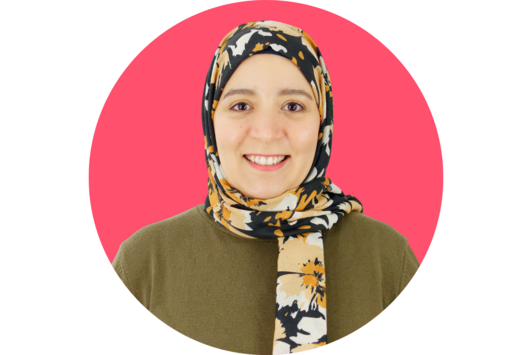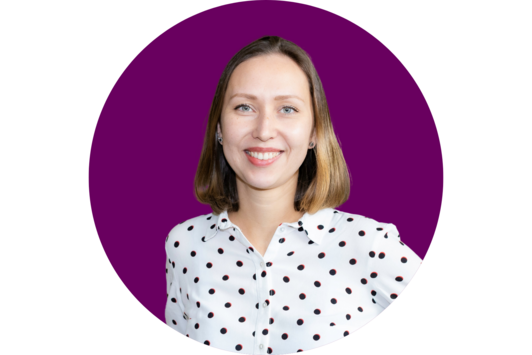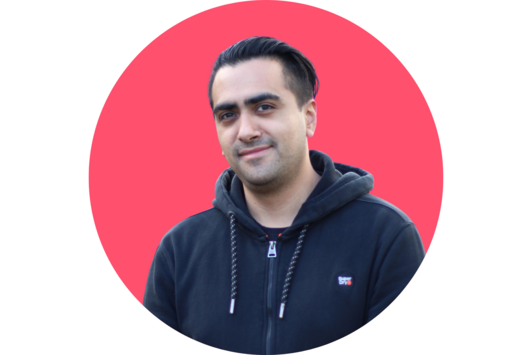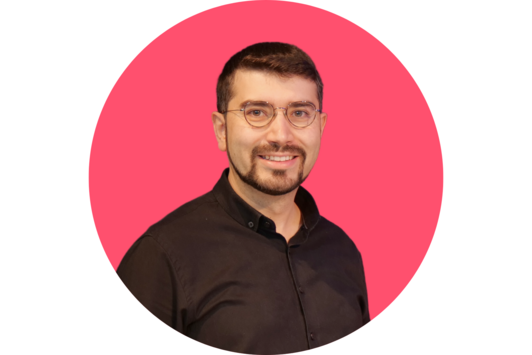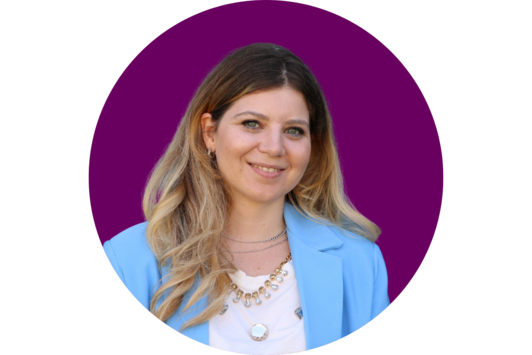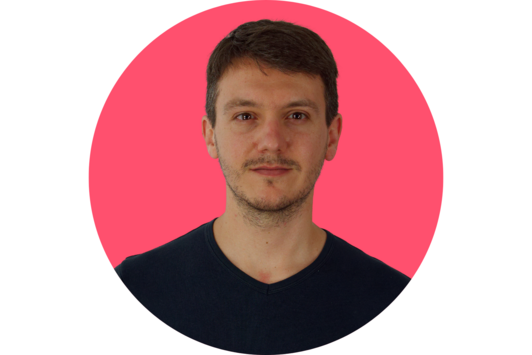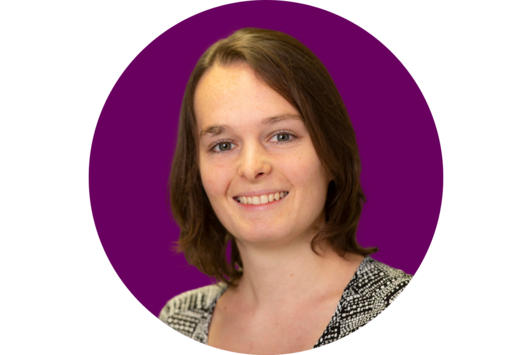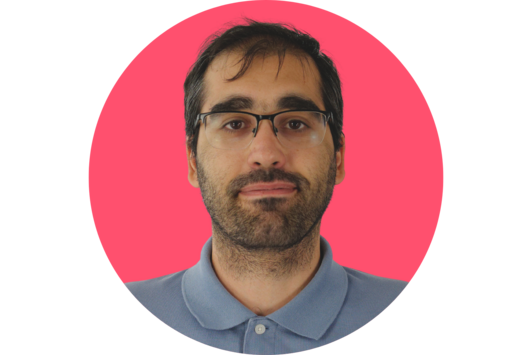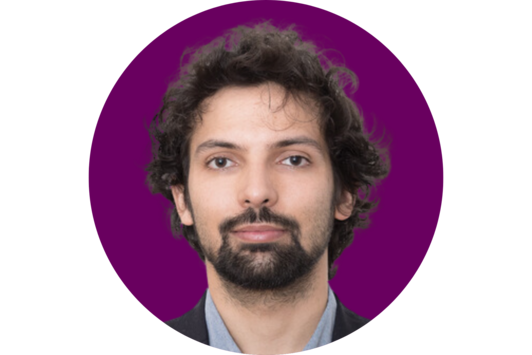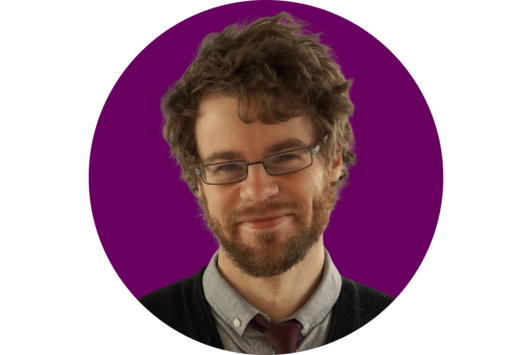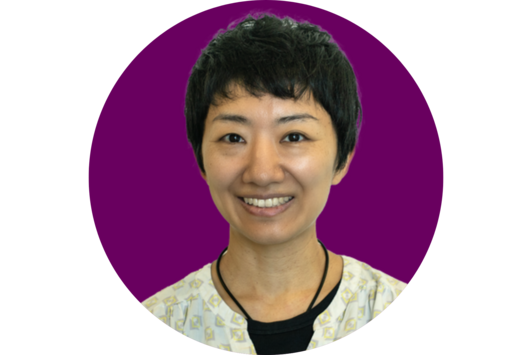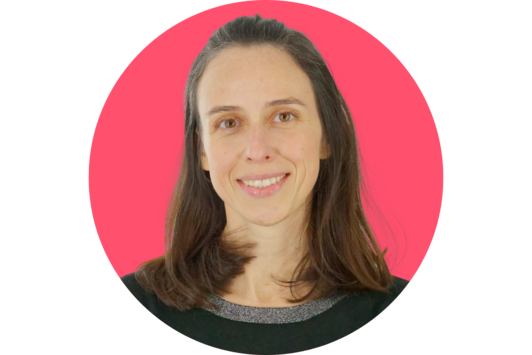
About the High Potentials Program
The High Potentials Program (HPP) is an internal program to support and train early-career postdocs at Helmholtz Munich to ensure that they are well-prepared for the next career steps. The two-year training program is designed for early-career postdocs who are already conducting research at Helmholtz Munich and want to assume leadership positions in science in the future. The HPP Fellows are selected via a competitive selection and reviewing process following an annual call.
The program includes in-person, online and blended learning formats as well as an annual retreat. The fellows receive in-depth group training and individual support e.g. to develop their academic profile; their third-party funding strategy; expertise in the German academic system; lab, leadership and project management skills; input on scientific collaboration and outreach; mentoring & coaching offers as well as a long-term involvement as an alumnus/alumna after completing the program. In addition, scientific symposia and a Scientific Advisory Board will support the fellows’ scientific progress and exchange across departments.
The program also counts on the fellows’ PIs or group leaders who are asked to engage in regular feedback and career development talks. Fellows can also profit from the intense collaboration and support of the HPP peer group which will be an essential benefit of the program.
Learn more about the fellows & their research

Alaa Bessadok
Helmholtz AI | Institute of Computational Biology, Computational Health Center
Academic Career & Research Areas
Alaa Bessadok obtained her master and bachelor degrees from the Higher Institute of Management of Gabes from the University of Gabes of Tunisia in 2018 and 2015, respectively. During this time, she studied informatics applied to management and business intelligence then she started her PhD at the Higher Institute of Computer Science and Communication Techniques (ISITCom), University of Sousse of Tunisia. During 3 years, she worked on brain connectome prediction for disorder diagnosis. In 2022, she started her postdoctoral position at Helmholtz AI where she focuses on cell-death mediated drug discovery. She was awarded Alexander von Humboldt Postdoc Fellowship and started working with two hosts from Helmholtz Munich.
Alaa’s research focuses on developing AI tools to predict cell death types of distinct drugs using high-content-screening (HCS) assays. Her main area of research is geometric deep learning with the aim of studying drug-induced cell death modalities (e.g., ferroptosis and apoptosis). The goal of her highly collaborative research is to employ computational techniques using artificial intelligence (AI) to understand how certain drugs may selectively induce a distinct form of cell death modality. This understanding will accelerate the use of such drugs in specific clinical settings.
What motivates you to continue in research?
"At a very young age I learned from my dad, who was science professor, how to develop a curiosity for everything in life. Later on, when I started my PhD, my love to science grows exponentially. Research mainly stretches my mind, boosts my critical thinking and teaches me how to appreciate the beauty in science despite all challenges and this is what keeps me in academia."

Olga Bondareva
Helmholtz Institute for Metabolism, Obesity and Vascular Research (HI-MAG)
Academic Career & Research Areas
Olga Bondareva completed her Bachelor and Master studies in Applied Mathematics and Physics at the Moscow Institute of Physics and Technology, Russia. She moved to Germany in 2014 to undertake her PhD in Biology as a member of the CiM-IMPRS Joint Graduate Program of the Max Planck Institute for Molecular Biomedicine and the University of Münster. During this time, Olga specialized in vascular biology, epigenetics and bioinformatics. In 2018, she joined the group of Lutz Hein at University of Freiburg for her postdoctoral studies. Here, she further pursued her interests in cardiovascular disease and epigenetics, and established a novel single-cell RNA-sequencing pipeline for the analysis of human cardiomyocytes. In 2020, Olga was recruited to the HI-MAG institute in Leipzig. She has been instrumental in establishing the single cell techniques at the Helmholtz Institute for Metabolism, Obesity and Vascular Research (HI-MAG) and is focused on understanding how metabolic disease causes irreversible damage to blood vessels.
Olga's research focuses on vascular dysfunction in diseases associated with metabolic stress and obesity. She is fascinated by the intricate mechanisms of transcriptional regulation and epigenetic control in vascular cells and their implication in the response to various environmental changes and disease. She is interested in novel techniques and analyses to study transcriptional and epigenetic changes such as single cell multiomics and spatial transcriptomics. Her projects so far combined bench work and bioinformatic analyses of high-throughput data, utilizing both complementary approaches. Olga Bondareva’s work is aimed on identification of epigenetic regulators and potential mechanisms of prevention in vascular disease.
What do you particularly enjoy about research?
"In science, I particularly enjoy the feeling at the edge of unknown, when you are about to lift the curtain and see WHAT IS THERE. The tingling curiosity and the constant challenge are great drivers for me!"
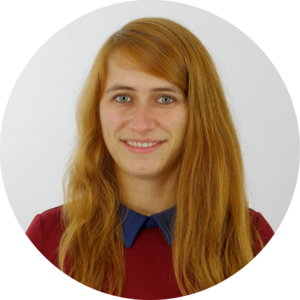
Ozvan Bocher
Institute of Translational Genomics | Computational Health Center
Academic Career & Research Areas
Ozvan Bocher completed her undergraduate studies in Biology and Mathematics at Pierre et Marie Curie University in Paris, with an Erasmus year in Newcastle-upon-Tyne, UK. She pursued a Master's degree in Statistical Genetics at Paris Saclay University. In 2018, she started her doctorate on the same topic at the University of Brest, France. Ozvan completed her doctorate in September 2021 which was awarded the best PhD in the Biology and Health field by the university. She joined the Institute of Translational Genomics at Helmholtz Munich as a post-doctoral fellow in January 2022.
Ozvan integrates her expertise in statistics and biology now as part of her research in the OPTOMICS project which aims at predicting type 2 diabetes (T2D) and its complications based on genetics, proteomics, metabolomics, and imaging data. Ozvan is both conducting analyses in large biobanks and supervising PhD students in this project. She is also part of the largest T2D genetics consortium and is leading a working group on identifying causal molecular pathways associated with T2D risk. In parallel, she has been driving analyses in the FastBio project characterizing the effects of specific dietary patterns on omics profiles, expanding her expertise on these molecular traits.
What excites you most about the potential impact of your research on your field or society?
"As a child, I wanted to become a medical doctor to help people with diseases. Over the years, my interest in science and research grew by realizing their impact on one of the major current health-related challenges, namely the prevention of complex diseases. As a researcher, I aim at contributing to this question by understanding how molecular profiles can inform disease risk, and how these can be modified upon lifestyle changes."
ORCID | LinkedIn | Twitter | Google Scholar |

Marie Bourdon
Institute of Translational Genomics | Computational Health Center
Academic Career & Research Areas
After obtaining her Master's degree in Genetics from the Université Paris Cité, Marie Bourdon embarked on her doctoral journey by joining the lab of Xavier Montagutelli at the Institut Pasteur. Investigating the genetic underpinnings of Zika virus susceptibility using mouse models became the focal point of her doctoral thesis. Her research during this period earned her the esteemed Verne Chapman Award from the International Mammalian Genome Society. She completed her PhD in November 2023 and joined Sarah Kim-Hellmuth's team at Helmholtz Munich in January 2024 as a postdoctoral researcher.
At Helmholtz Munich, Marie shifted her focus from murine to human genetic studies. She is delving into the biology regulation of plasmacytoid dendritic cells (pDCs) and exploring the genetic determinants influencing their functions. To this aim, she is using single-cell multi-omics approaches on pDCs from healthy donors. Thus, she works at the intersection of experimental approaches and bioinformatics analyses. Her results will deepen our understanding of the role of pDCs in antiviral and inflammatory responses.
Looking ahead, what are your aspirations and goals for your career in the next few years?
"I have always been interested in science and quickly set my sights on becoming a researcher. Since then, every step of my academic background has only confirmed that this is definitely the right path for me, and I hope to fully realize my goal of becoming a group leader in the future."
ORCID iD |
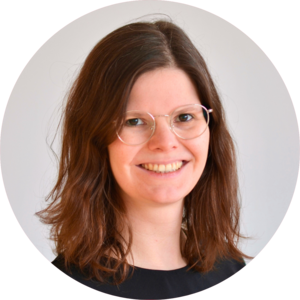
Lena Cords
Institute of Lung Health and Immunity | Environmental Health Center
Academic Career & Research Areas
Lena Cords is a postdoctoral researcher with expertise in both wet-lab and computational biology. She completed her Bachelor’s degree in Molecular Medicine at the University of Tübingen in Germany including a year at the Karolinska Institutet in Stockholm, Sweden. Afterwards, she obtained a Master’s degree in Integrated Immunology at the University of Oxford in 2018. For her PhD, she moved to Zürich, Switzerland, joining the Bodenmiller lab at both ETH and the University of Zurich in 2019. There, she studied cancer-associated fibroblast heterogeneity by analysing multi-omics spatial single-cell data and received a PhD distinction for her work from the University of Zurich in 2023.
Lena’s research interests include cell-to-cell communication and spatial single-cell biology. Her postdoctoral work at the Schiller lab focuses on the analysis of cell circuits in chronic lung diseases, including chronic-obstructive pulmonary disease (COPD) and pulmonary fibrosis (PF). She is investigating the underlying signalling cues involved in disease progression and tissue regeneration, integrating multi-omics approaches with multiplexed imaging of patient samples. Through this, it is her goal to contribute to the understanding of COPD and PF pathophysiology to pave new ways for novel treatment strategies for chronic lung disease patients.
How do you stay motivated and maintain enthusiasm for your work, especially during challenging times?
"To me, research means being curious about all things currently unknown. My own curiosity about what I might eventually find out is keeping me highly motivated at work. When the solution to a problem doesn’t present itself immediately, I am determined that there will be a solution in due time and always remain curious about how the issue will be resolved in the end."
ORCID iD | LinkedIn | Google Scholar |

Marjolein Heddes
Institute for Diabetes and Endocrinology, Helmholtz Diabetes Center
Academic Career & Research Areas
Marjolein Heddes earned both her Bachelor's and Master's degrees in Nutrition and Health from the University of Wageningen in the Netherlands, with a specialization in Molecular Nutrition and Toxicology. She then pursued a doctorate at the Technical University of Munich, where she researched the intestinal circadian regulation of the microbiome and host metabolism. After completing her doctoral studies, she continued her passion for metabolism and chronobiology by joining the Institute for Diabetes and Endocrinology at Helmholtz Munich in 2023.
Marjolein is currently dedicated to exploring the intricacies of nuclear receptors in circadian hepatic metabolism. Her ongoing project involves the development of a novel mouse line, and the application of multi-omics approaches on the liver around the clock. The overarching goal of her research is to unveil novel pathways and identify target genes essential for a comprehensive understanding and enhancement of hepatic metabolism in the context of diseases.
What inspired you to pursue your current research direction, and how has it evolved since then?
"I was inspired by a short course during my bachelor's studies, where I learned about the significant impact of disrupted circadian rhythms on human health. This knowledge stimulated me to pursue my doctoral studies in a chronobiology lab in Germany. Now, as a postdoc, I am excited to continue this research and enhance the understanding of these rhythms within the context of diseases."

Donovan Correa-Gallegos
Institute of Stroke and Dementia, Ludwig-Maximilian University
Institute of Regenerative Biology and Medicine, Environmental Health Center (Guest Researcher)
Academic Career & Research Areas
After completing his undergraduate studies in Biomedical Research and Masters in Biochemical Sciences at the Autonomous National University of Mexico, Donovan Correa-Gallegos obtained in 2021 his doctorate in the field of medical research at the Faculty of Medicine of the Ludwig-Maximilian University (LMU). He continued his research career at Helmholtz Munich in the Institute of Regenerative Biology and Medicine (IRBM) as a full-time postdoctoral researcher until December 2023 and joined the High Potentials Program. In January 2024, Donovan joined Dichgans Lab at the Institute of Stroke and Dementia of the LMU as a postdoctoral researcher and continues as a guest researcher at the IRBM.
Donovan's research interest revolves around the unveiling of cellular processes that orchestrate tissue development and repair. Particularly, his research has focused on the role of cellular heterogeneity in tissue injury, repair, and disease. Donovan has specialized in advanced image analysis methods, single-cell transcriptomics, and animal models of tissue repair and disease.
What motivates you to continue in research?
"Research always pushes the limits of our imagination, logical reasoning, and creative thinking. I just never get bored!"

Laurens De Sadeleer
Institute for Lung Health and Immunity, Environmental Health Center
Academic Career & Research Areas
Laurens De Sadeleer is a pulmonologist and postdoctoral fellow in the Cell Circuits lab of Dr Herbert Schiller. He obtained his Bachelor’s and Master’s degree in Medicine at KU Leuven and completed his PhD at the BREATHE Laboratory at KU Leuven, Belgium in 2020. Afterwards, he received his further clinical training in Respiratory Medicine at St Lucas Hospital in Brugge, ZOL Hospital in Genk and at the University Hospitals Leuven, Belgium In 2022, he was supported by a prestigious Marie Curie-Sklodowska Postdoctoral Fellowship and joined Helmholtz Munich.
Laurens research interests include the characterization of the morpho-molecular progression of pulmonary fibrosis (PF) throughout temporal evolution and spatial diversity within the lung, using innovative multi-omics systems biology approaches. Moreover he is fascinated by the clinical diversity in pulmonary fibrosis and his goals are to understand this heterogeneity from a molecular angle, to endotype pulmonary fibrosis (PF) based on molecular mechanisms and pursuing personalized treatment in PF.
What excites you about research?
"Lung research gives me the unique opportunity to work with this fascinating organ which still surprise me regularly. Observing the enigmatic yet powerful process of inury response and how this can go wrong, is what excites me every day."
Google Scholar | ORCID iD | LinkedIn | ResearchGate | Twitter

Mehmet Gökkaya
Institute of Environmental Medicine, Environmental Health Center
Academic Career & Research Areas
After graduating from the University of Tübingen in Biochemistry, Mehmet Gökkaya started his PhD thesis at the Department of Environmental Medicine in the field of respiratory diseases. He has published six peer-reviewed articles and two additional articles in German. In 2022. he won a PI grant for his current research project on biomarkers predicting the course of COVID-19 infections. In 2021, Mehmet joined Helmholtz Munich to work for the projects CORAERO and PerForM-REACT. Additionally, he received the “Specific Immunotherapy Award” of DGAKI in 2021 and has filed a patent application.
For the last six years, Mehmet has worked in the field of allergy, studying biomarkers and their link to environmental factors. Early on in his work he realized the potential of combining bioinformatics expertise with immunological experimental work. By focusing on local immune responses in allergic patients and looking for nasal biomarkers he became a scientific game changer. His current aim is to identify early immune biomarkers that help to optimize the management of COVID-19 infections.
What motivates you to continue in research?
"I love science and I really enjoy the academic exchange. Research is full of opportunities and you can join different projects and working groups in order to follow your interests, explore new research areas and close knowledge gaps.
Above all, I enjoy the independence of thought. I never tire of expanding my understanding of biological mechanisms, my knowledge and my abilities to explore and investigate new areas in depth.” ."
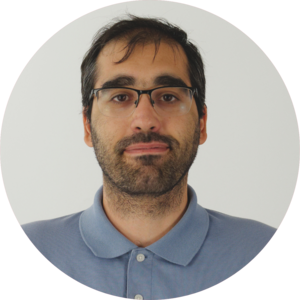
Christos Karampelias
Institute of Diabetes and Regeneration Research | Helmholtz Diabetes Center
Academic Career & Research Areas
Christos Karampelias obtained his undergraduate degree in Molecular Biology and Genetics at the Democritus University of Thrace, Greece. For his MSc degree, he studied Developmental and Reproductive Biology at Imperial College London, United Kingdom. In 2021, he was awarded his PhD degree in Medical Sciences from Karolinska Institutet, Sweden, studying pancreatic beta-cell regeneration and drug development. Since 2022, he has been a postdoctoral fellow in the Institute of Diabetes and Regeneration Research headed by Prof. Heiko Lickert at Helmholtz Munich and currently funded by the Alexander von Humboldt and MSCA Postdoctoral Fellowships.
At the Institute of Diabetes and Regeneration Research, Christos’ research focuses on understanding postnatal pancreas development and regeneration to identify new molecular targets for patients suffering from diabetes. To achieve that, he uses porcine and human pancreas models in combination with transcriptomics and chemical biology approaches to understand the molecular and cellular mechanisms of postnatal pancreas development and regeneration in homeostasis as well as models of diabetes.
How do you stay motivated and maintain enthusiasm for your work?
"I enjoy talking Science (especially Night Science) with colleagues and people in general. That gives me motivation to continue having fun within a very unpredictable line of work."
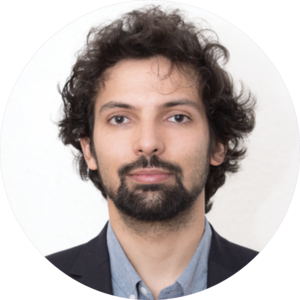
Florian Kofler
Helmholtz AI
Academic Career & Research Areas
Florian Kofler is currently an AI Consultant in the team of Marie Pireaud and specializes in biomedical image analysis for health projects. Florian holds a doctoral degree in Informatics from the Technical University of Munich, with expertise in deep learning for MR, CT, and microscopy data. His interdisciplinary background unites industry experience, an honors degree in Technology Management, a Master's in Neuro-Cognitive Psychology and a Bachelor in Sociology / Psychology.
Florian’s research focuses on computer vision, pattern recognition and model evaluation in the biomedical domain. Specifically, Florian aims to build bridges between studying human perception and machine learning. His goal is to infuse machine learning models with human expert knowledge and to enhance clinical decision-making with machine support.
What inspired you to pursue your current research direction, and how has it evolved since then?
"My interest in object and pattern recognition sparked during my studies in experimental Psychology, where I explored how primate brains solve visual recognition tasks. This interest evolved as I transitioned from academia to industry and back, increasingly focusing on the computational side while developing computer programs for object recognition."
ORCID | LinkedIn | Twitter | Google Scholar | GitHub
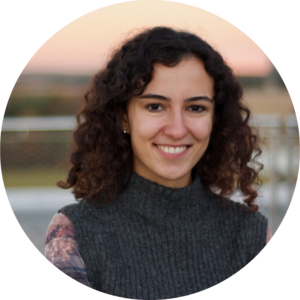
Zeynep Ilgın Kolabaş
Institute for Tissue Engineering and Regenerative Medicine, Bioengineering Center
Academic Career & Research Areas
Zeynep Ilgın Kolabaş completed her undergraduate studies in Molecular Biology, Genetics, and Bioengineering at Sabanci University in Istanbul, Turkey. After completing her undergraduate studies, she moved to Nijmegen, the Netherlands, to study Cognitive Neuroscience at Radboud University. Granted a fellowship to conduct her thesis studies abroad, she completed her master's thesis at the Institute for Stroke and Dementia Research at the University of Munich Hospital. In 2019, she began her PhD at the Graduate School of Systemic Neurosciences at the LMU Munich and Helmholtz Munich. Before concluding her PhD studies in January 2024, she pursued an internship at Genentech in San Francisco, where she contributed to the Cell and Tissue Genomics Department. Currently, she is advancing her research career at Helmholtz Munich, exploring systems biology through the utilization of cutting-edge technologies such as whole-body tissue clearing and imaging.
Ilgın’s current research focuses on elucidating whole-body changes associated with systemic diseases, with a specific emphasis on the interplay between bones, nerves, and the immune system. Building on her earlier research, her trajectory revolves around developing a holistic understanding of the skull's intricate communication with the brain. She aims to advance personalized medicine, easing the effects of neurodegenerative diseases through tailored diagnostics and monitoring.
What excites you about research?
"Exploring the unknown can be intimidating, but there's this amazing feeling when we get closer to a new discovery or doing something for the first time. It's those moments of satisfaction that keep me excited and motivated in my research journey."
LinkedIn | Twitter | Google Scholar |
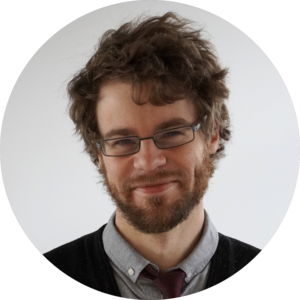
Maxime Lalonde
Institute of Epigenetics and Stem Cells, Stem Cell Center
Academic Career & Research Areas
Maxime Lalonde studied Biochemistry in Montreal, Quebec, Canada. He obtained his PhD from the University of Montreal in 2020. During his doctoral research, he worked with the yeast S.cerevisiae, studying the expression and localization of the telomerase RNA TLC1 and the telomeric LNC RNA TERRA. After completing his doctorate, Maxime joined Stephan Hamperl's Lab at Helmholtz Munich as a post-doctoral researcher.
Maxime’s research focuses on Transcription-Replication Conflicts (TRCs) and cell fate maintenance perturbations in mouse embryonic stem cells. His research aims to understand how TRCs can interfere with cell fate maintenance and how the coordination between transcription and replication is affected by changes in cell fate states.
How do you stay motivated and maintain enthusiasm for your work, especially during challenging times?
"Challenging times in research are ubiquitous. What I like about fundamental research is to tackle a question with no known answer. In that perspective, challenging times only represent a change in which unknown you are asked to tackle. By taking a step back, assessing what is the new challenge, and how to solve it, is still, at its core, what I like about fundamental research."

Daniel Lang
Institute of Machine Learning in Biomedical Imaging | Computational Health Center
Academic Career & Research Areas
Daniel Lang is a postdoctoral researcher at the Institute of Machine Learning in Biomedical Imaging. Furthermore, he holds the role of a principal investigator in the Helmholtz Imaging Project CLARITY, conducted in cooperation with the German Cancer Research Center (DKFZ). Daniel joined Helmholtz Munich for his doctoral research and finished his PhD at the Department of Physics of the Technical University of Munich (TUM) with distinction (magna cum laude). He studied Physics at the University of Regensburg and completed his Master's thesis in cooperation with the Deutsches Elektronen-Synchrotron (DESY) in Hamburg.
Daniel's research is primarily focused on the development of machine learning applications in the field of medical imaging, with a specific focus on cancer diagnosis and treatment. He is particularly interested in the implementation of these applications in radiation oncology. To achieve his goals, Daniel develops innovative deep learning algorithms in the research domain of self- and unsupervised learning, domain adaptation, survival analysis, and anomaly detection. The aim of his research is to design algorithms that enable non-invasive determination of imaging biomarkers, improve patient stratification, and identify patients who may be at risk for overdosage.
What inspired you to pursue your current research direction, and how has it evolved since then?
"The combination of cutting-edge artificial intelligence (AI) algorithms with an implementation in medicine is very exciting to me. I really enjoy developing and enhancing new and existing AI models to be applicable in medical imaging."
ORCID | Google Scholar | GitHub |

Monika Litvinukova
Helmholtz Pioneer Campus | University Hospital Würzburg
Academic Career & Research Areas
Monika Litvinukova has completed her undergraduate bachelor’s and master’s degrees in Biological Chemistry, as part of an elite cross-border study between Linz, Austria and Budweis, Czechia. She focused on biophysics of calcium signaling, for which she has received the Dean Award for her Master thesis. In 2017, Monika moved to Berlin to work in cardiac biology at the Max Delbrück Center. As part of her project on mapping the cell states of healthy human heart she has spent three years as a visiting scientist at the Wellcome Sanger Institute in Cambridge, UK. She has obtained her PhD in Biology at Humboldt University and has received the MDC 2020 publication prize for her PhD work. In 2021, she spent three months in Helmholtz Munich as part of the HiDA Program.
During her postdoc at the Helmholtz Pioneer Campus (2022-2023), Monika focused on developing and establishing new in vitro protocols for hepatic organoids as a model for liver ploidy and aging. She has also used single cell technologies to better understand how hepatocytes accumulate lipids and what is the role of ploidy in the process. In November 2023, Monika moved to University Hospital Würzburg to start her own junior research group to study the role of vascular cells in the immune response in cardiac health and disease, while she continues to closely collaborate with her previous mentors at Helmholtz Munich.
What motivates you to continue in research?
"I have been extremely lucky to work with fantastic female mentors, who gave me the courage and confidence to pursue my scientific career. I am very passionate about tackling inequality, in both science and society. I envision to provide the same stimulating environment to the next generation of scientists."

Mo Lotfollahi
Institute of Computational Biology, Computational Health Center
Academic Career & Research Areas
Mo Lotfollahi completed his studies in Artificial Intelligence at the Sharif University of Technology in Iran. After that, he moved to Germany to start a Ph.D. with Fabian Theis in computational biology. He has recently finished his Ph.D. at the School of Life Sciences at the Technical University of Munich (TUM) with distinction (summa cum laude).
Mo's work lies in the intersection of machine learning (ML) and biology. He leverages machine learning to understand health and disease using single-cell biology for drug discovery and cell engineering. He has industry experience as a research intern and visitor, and consultant for both drug discovery companies and machine learning research (e.g., Cellarity, Facebook AI ). He was won multiple awards, from best paper awards to fellowships and awards from quantitative biosciences Munich (QBM), Joachim Herz Stiftung, Bayer Foundation and EMBL.
What excites you about research?
"The fact the I wake up and I can work completely new idea and new challenge never gets repetitive!"
Google Scholar | LinkedIn | Twitter | Website

Agathe Marcelot
Institute of Structural Biology | Molecular Targets and Therapeutics
Academic Career & Research Areas
Agathe Marcelot conducted her Bachelor's studies in Biochemistry at the University Paris-Saclay and her Master's in Structural Biology at the University Paris-Diderot. She then returned to the University Paris-Saclay with a fellowship to conduct a PhD in the field of Biochemistry and Structural Biology, with a strong focus on protein Nuclear Magnetic Resonance (NMR) spectroscopy. During her 2-year postdoctoral position in Paris, she continued to utilized NMR spectroscopy to investigate RNA. Subsequently, she was awarded a prestigious Marie Skłodowska-Curie Fellowship in 2024 to further her research at the Institute of Structural Biology at Helmholtz Munich.
Agathe’s research focuses on long non-coding RNA (lncRNA) and their post-transcriptional modifications. lncRNA expression is altered in numerous cancers but their large size limits their investigation. She uses Nuclear Magnetic Resonnance spectroscopy together with other biophysical tools to study the molecular determinants of their conformations, interactions, and dynamics. The goal of her highly collaborative research is to broaden the understanding of how large, structured but highly dynamic RNAs interact specifically with proteins.
How do you approach collaboration with other researchers, and what do you value most in those partnerships?
I always approach collaborations with other researchers with enthusiasm, particularly when they are experts in domains very different from my own. I find it amazing to team up with people who have very different approaches of Biology and manage to solve ambitious biological questions together.
ORCID iD |

Misako Nakayama
Institute of Lung Health and Immunity and Comprehensive Pneumology Center | Environmental Health Center
Academic Career & Research Areas
Misako Nakayama completed her medical studies at Shiga University of Medical Science (SUMS) in 2006. Following a two-year clinical training period, she embarked on her career as a pathologist in Japan. Driven by her interest in immunology, she joined a lab focused on translational research using nonhuman primates. In this role, she explored the pathogenicities of both avian and human influenza viruses and assessed vaccine efficacies, culminating in her earning a doctorate in 2014. Between 2017 and 2019, Misako expanded her expertise at Helmholtz Munich, supported by fellowships from the Uehara Memorial Foundation and SUMS. During this time, she honed her skills in air-liquid interface culture techniques for infection research. In September 2023, she returned to Helmholtz Munich with a Marie Sklodowska-Curie postdoctoral fellowship.
Misako's research interest lies in the host responses following respiratory virus infection. Currently, her main focus is to unravel the mechanisms behind viral-induced exacerbations (flare-ups) in patients with chronic obstructive pulmonary disease (COPD) by investigating the interactions between airway epithelium and fibroblasts in ex-vivo models.
What inspired you to pursue your current research direction, and how has it evolved since then?
"I truly enjoy observing tissues under the microscope to understand what's happening in infected lungs. I'm enthusiastic about diving deeper and exploring the cross-talk between different cell types in both healthy and diseased tissues using cutting-edge techniques like spatial transcriptomics!"
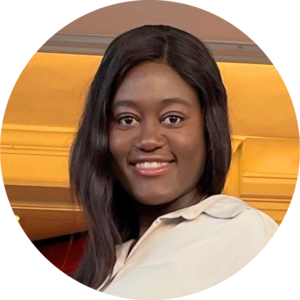
Pamela A. Nono Nankam
Helmholtz Institute for Metabolic, Obesity and Vascular Research (HI-MAG)
Academic Career & Research Areas
Pamela Nono Nankam began her academic journey with a Bachelor and Master of Sciences in Animal Physiology at the University of Dschang in Cameroon. Subsequently, she was awarded the NRF-TWAS scholarship to pursue her PhD in the Department of Exercise Science and Sport Medicine at the University of Cape Town in South Africa. She moved to Germany and joined the Faculty of Medicine at the University of Leipzig towards the end of her PhD phase with a DAAD Research Grant to complete her doctorate. In 2021, she joined Matthias Blüher´s Research Group at the Helmholtz Institute for Metabolic, Obesity and Vascular Research (HI-MAG) where she is currently a postdoc.
Pamela´s research focus is aiming for a better understanding of human disease mechanisms related to adipose tissue dysfunction. She currently works on adipose tissue function characterization in lipedema and identification of circulating disease biomarkers. Her work has been recognized by the first research award of the German Lipedema Association 2023 and is funded by a grant from the Lipedema Foundation in the USA (also awarded in 2023). She also leads the studies in single cell/nuclei investigations of adipose tissue in humans with a wide range of fat mass and fat distribution. In parallel, she plays an important role in developing a comprehensive meta-analysis of publicly available and newly generated single-cell, single-nucleus, and spatial transcriptomic results from human subcutaneous, omental, and perivascular white adipose tissue.
What excites you most about the potential impact of your research on your field or society?
"One aspect that excites me is the prospect of improving diagnostic accuracy and early detection methods, which may enable timely interventions and personalized treatment approaches. This has the power to drive positive change, transform healthcare practices, and ultimately, improve the lives of countless individuals affected by lipedema and obesity."

Valeria Napolitano
Institute of Structural Biology, Molecular Targets and Therapeutics
Academic Career & Research Areas
Valeria Napolitano completed her undergraduate studies in Chemistry at the University of Naples “Federico II”. For her PhD, she joined the group of Prof Dubin at Jagiellonian University as MSCA-ITN fellow. In 2019, Valeria joined the group of Grzegorz Popowicz at Institute of Structural Biology at Helmholtz Munich.
Valeria's research focuses on identifying novel therapeutic targets and design potential drug candidates making use of the structural information. She uses structural biology and biochemical techniques to elucidate the structure and the function of proteins critical for health and linked to disease (i.e. antibiotic resistance, COVID19 and Trypanosomiasis) providing support to the structure-based drug discovery. Another aspect of her research focuses on developing macromolecules carriers to better treat diseases and illnesses like genetic disorders and cancers.
What excites you about research?
"Research allows you to pursue your interests, to learn always something new, to hone your problem-solving skills and to constantly challenge yourself in new ways. Doing research means that you are contributing to the discovery or development of something that can make a difference in people’s lives and there is nothing more satisfying."

Aaron Novikoff
Institute for Diabetes and Obesity, Helmholtz Diabetes Center
Academic Career & Research Areas
Aaron Novikoff is a postdoctoral researcher with expertise in both spatial and targeted molecular pharmacology for the treatment of diabetes and obesity. Originally from La Habra, California, he completed his undergraduate studies at the California Polytechnic University – San Luis Obispo. Following international experience in industry, in 2018 Aaron returned to academia completing his Master’s degree in Nutrition and Biomedicine at the Technical University of Munich (TUM), with a focus on time-series metabolomics analysis. Aaron then found interest in the field of drug discovery, and went on to achieve his doctorate in molecular pharmacology at Helmholtz Munich in 2022.
Aaron’s current research centers around customizing control over the traditional receptor response through co-targeted modifications of both drug structure and subcellular environment. Through this, his immediate goal is to achieve system-wide enhancements in peptide-based drug efficacy. Aaron’s long-term goal is to optimize therapeutics across multiple disease states by establishing a customizable interface connecting cellular microenvironment dynamics to the relevant optimizations needed for disease-specific receptor-based pharmacology.
What motivates you to continue in research?
"I am motivated by the gratitude of the opportunity, and the off-chance that my curiosity can contribute to reducing the burdens of those affected by non-communicable diseases. I also find the complex problem-solving and collaborative efforts required to uncover such mysteries pretty awesome too."
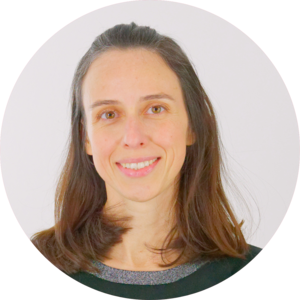
Viktoria Ocvirk
Institute of Epidemiology | Environmental Health Center
Academic Career & Research Areas
Viktoria Ocvirk completed her bachelor's and master's degrees in Nutritional Sciences at the Technical University of Munich (TUM). She holds a PhD in genomics of complex diseases. During her doctoral research, she worked on identifying molecular mechanisms of genomic risk variants for type 2 diabetes. Following this, she gained considerable experience in the pharmaceutical industry at the Research IT Group at Bayer, as well as a regional governmental organization, dedicating her efforts to promoting and advancing sustainable nutrition and farming practices.
Combining her experience in complex diseases and environmental projects, Viktoria now pursue a postdoc in allergy research at the Institute of Epidemiology, Helmholtz Munich. Her focus is on understanding the relationship between genetics and exposure to common environmental allergens in the development of conditions such as asthma, rhinitis, or atopic dermatitis. As the prevalence of allergic diseases continues to rise, this knowledge becomes imperative for formulating precise preventative measures and personalized treatment approaches.
What inspired you to pursue your current research direction, and how has it evolved since then?
"I have always been fascinated by the interplay between genes, environment, and health and how its disturbance can lead to various complex diseases and immune dysfunctions. With climate change and increasing environmental pollution, a better understanding of these dependencies and their underlying mechanisms becomes ever more important."

Thomas J. O‘Neill
Institute of Signaling and Translation | Molecular Targets and Therapeutics Center
Academic Career & Research Areas
Thomas O'Neill is a biologist and postdoctoral researcher at the Institute of Signaling and Translation at Helmholtz Munich. He earned his M.Sc. in Biochemistry from Ludwig-Maximilians-Universität Munich and completed his Ph.D. at Helmholtz Munich, focusing on the signaling mechanisms regulating cellular homeostasis in T cells. Awarded the Helmholtz Best Paper Award for his doctoral research, Thomas has continued his research since obtaining his Ph.D. in 2021, leading several first-author publications and securing a patent.
His research interests lie in exploring immune signaling mechanisms in healthy and diseased cells. Thomas has expertise in designing, establishing, and analyzing sophisticated cellular and animal models of immune diseases. His current research interests include dissecting the mechanisms that promote chronic oncogenic signaling in B cells, and he hopes that these studies will enable the prediction of novel precision therapies for the treatment of lymphoma.
What excites you about research?
"It is my hope that my research will advance our understanding of healthy cellular processes and provide invaluable insight into how to combat disease. There are a seemingly infinite number of beautiful scientific questions that remain to be answered, and it is a privilege to have a career that celebrates curiosity!"
ORCID | LinkedIn | Google Scholar | ResearchGate |

Marlies Oomen
Institute of Epigenetics and Stem Cells, Stem Cell Center
Academic Career & Research Areas
Marlies Oomen obtained her Bachelor’s and Master’s degree in Molecular Life Sciences and Drug Innovation at the University of Groningen, the Netherlands. She then did her PhD in the laboratory of Job Dekker at UMass Medical School, Worcester, MA, USA, splitting her time 50/50 between bioinformatics and wet lab. During her PhD, she focused on chromosome organization and epigenetic bookmarking during mitosis, using genomics techniques such as Hi-C, ATAC-seq and Cut&Run, as well as developing a novel technique to observe sister chromatid interactions.
Marlies joined the Torres-Padilla lab in September 2021 as an EMBO postdoctoral fellow. Here, she studies transcriptional regulation at and around transposable elements in early mammalian development, addressing her research questions using both computational and experimental approaches. By comparing how transposable elements regulate and are regulated across different mammalian species, she aims to gain a deeper understanding on how transposable elements and their host genomes co-evolved.
What excites you about research?
"I have always enjoyed puzzles and problem solving. Researchers come across such puzzles on a daily basis; both on a small, more practical level, while doing experiments, as well as on a much bigger scale when tackling scientific questions. The process of creative thinking and finding solutions for these scientific problems, is what I enjoy most about science."

Anne-Sophie Pepin
Institute of Functional Epigenetics | Molecular Targets and Therapeutics
Academic Career & Research Areas
Anne-Sophie Pepin obtained her Bachelor’s and PhD degrees in Pharmacology and Therapeutics at McGill University. During her undergraduate studies, she worked on various projects investigating the role of DNA methylation in transcriptional regulation. Combining animal models, epigenomics and transcriptomics data, and bioinformatics approaches, her doctoral thesis aimed at exploring the consequences of paternal obesity on the sperm chromatin, embryonic and placental development, and offspring metabolic health. Her studies were supported by doctoral scholarships, and the quality of her work, publications, conference presentations, and leadership, have been recognized by multiple awards.
To further her interest in the crosstalk between metabolism and the epigenome, Anne-Sophie moved to Germany in 2022 and joined the Schneider group at Helmholtz Munich as a postdoctoral researcher. Her current research focuses on investigating the functional roles of the combinatorial occurrence of histone modifications on transcription in the context of a metabolic disorder. Her collaborative work involves the development of an experimental and computational framework for single-cell multi-omics profiling of clinically-relevant samples. In 2024, Anne-Sophie was awarded a Marie Sklodowska-Curie Postdoctoral Fellowship for her research.
How do you stay motivated and maintain enthusiasm for your work, especially during challenging times?
"My three rules to stay motivated are to (1) keep in mind my long-term goals, (2) remember that any achievements, as small as they can be, are steps forward, while challenges are opportunities to learn and grow, and (3) find balance by keeping myself busy outside of the lab as additional sources of fulfillment."

Sebastian Schmidt
Institute of Developmental Genetics & Institute for Synthetic Biomedicine | Stem Cell Center
Academic Career & Research Areas
Sebastian Schmidt completed his undergraduate studies in Biochemistry at the Technical University of Munich (TUM). In 2017, he joined Helmholtz Munich to pursue his doctorate in neuroscience with a focus on sporadic Parkinson’s disease. After successfully completing his PhD in 2021, he decided to stay as a Postdoc at the Institute of Developmental Genetics. He also joined the Chair of Neurobiological Engineering at the Munich Institute of Biomedical Engineering at TU), where he is involved in the development of genetic tools and multi-electrode array systems.
Sebastian's research primarily focuses on understanding the molecular mechanisms that contribute to the neurodegeneration process in sporadic Parkinson’s disease. He is particularly interested in studying cell-cell communication and its influence on cellular metabolism. To achieve this, he utilizes patient-derived cells to identify potential interference points that can be used for drug screening purposes.
What excites you most about the potential impact of your research on your field or society?
"What I find particularly interesting about my research is that it enables new concepts and therapeutic approaches in a field that is increasingly fixated on alpha-synuclein."

Daniela Schranner
Systems Metabolomics Group, Institute of Computational Biology, Computational Health Center
Academic Career & Research Areas
Daniela Schranner completed her Bachelor’s and Master’s in Exercise Physiology at the Technical University of Munich and at the University of Sydney in Australia, with a focus on human performance, health and exercise training. In 2017, she started her PhD in Exercise Biology at the Technical University of Munich and received a doctoral scholarship from the German National Scholarship Foundation (Studienstiftung des deutschen Volkes) from 2018-2021. During her PhD, she spent time as a visiting researcher at Harvard Medical School in Boston, USA. Since June 2021, Daniela is a postdoc in the group of Gabi Kastenmüller.
Daniela’s research focuses on characterizing the short and long-term metabolic changes of exercise and their beneficial role for human health and preventive potential for diseases. Since joining Helmholtz Munich, her specific focus lies on the molecular underpinnings of the preventive potential of individualized exercise training for neurodegenerative diseases (e.g., Alzheimer’s diseases).
What excites you about research?
"What excites me about my research is to continuously discover new pieces on how exercise benefits the healthy and the diseased metabolism and the challenge of putting all these pieces together. I draw my day-to-day motivation from my vision to personalize exercise training and physical activity to prevent diseases or mitigate their burden."
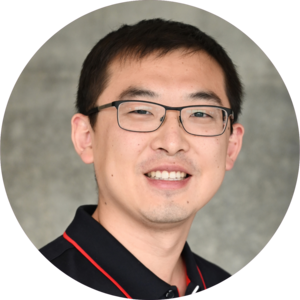
Chenglei Tian
Institute of Translational Stem Cell Research | Helmholtz Diabetes Center
Academic Career & Research Areas
Chenglei Tian commenced his academic journey with a Bachelor's and Master's degrees in the College of Marine Life Science at the Ocean University of China. Subsequently, he pursued a Ph.D. in Cell Biology at Nankai University's State Key Laboratory of Medicinal Chemical Biology. Chenglei then assumed the role of Postdoctoral Researcher in Human Stem Cell Biology at the Novo Nordisk Foundation Center for Stem Cell Biology, University of Copenhagen, before transitioning to Henrik Semb's lab at Helmholtz Munich, the Institute of Translational Stem Cell Research. Chenglei has twice been awarded National Scholarships and honored with the Excellent Achievement Award for Scientific Research in China.
Chenglei's research interest revolves around using PSCs to restore normal human endocrine functions, with a primary focus on two key areas: (1) Generation of developmentally competent oocytes and fertile mice from pluripotent stem cells; (2) Pioneering the creation of hPSC-derived islets of Langerhans-like clusters with functional attributes on par with human islets, with the ultimate goal of translating these experimental findings into clinical applications. Currently, he is actively involved in the EU Horizon 2020 "ISLET" project, focusing on innovating advanced cell therapy for diabetes.
Looking ahead, what are your aspirations and goals for your career in the next few years?
"My career objective is to lead my own research group/lab to continue my research in the field of human pluripotent stem cells and regenerative medicine and continue to contribute to the advancement of science. I aim to contribute to scientific progress in this area continuously. This pursuit fuels my motivation."
ORCID iD | LinkedIn | Google Scholar | ResearchGate |

Denis Vecellio Reane
Institute of Diabetes and Obesity, Helmholtz Diabetes Center
Academic Career & Research Areas
Denis Vecellio Reane graduated in Medical Biotechnologies from the University of Padua. In 2016, Denis obtained his PhD in Biosciences and Biotechnologies at the University of Padua in the field of calcium signalling in mitochondria under physiological and pathological conditions. As a postdoctoral researcher at the University of Padua, he focused on the mechanisms of tissue-specific regulation of mitochondrial calcium signalling, focusing on skeletal muscle. In 2021, Denis joined Helmholtz Munich to continue his research in the field of interorganelles communication. He was awarded a Marie Skłodowska-Curie Postdoctoral Fellowship funded by the European Union in 2022 to study the alteration of endoplasmic reticulum-mitochondria crosstalk in metabolic diseases.
Denis' research focuses on signalling crosstalk between the endoplasmic reticulum and mitochondria. He is interested in how communication between these intracellular organelles is modulated under physiological or pathological conditions. The aim of his research is to understand how intrinsic changes in one organelle can affect the functions of the other. Using a systematic approach that combines unbiased and hypothesis-driven experiments, Denis' research aims to identify how alterations in inter-organelle crosstalk contribute to the onset and progression of metabolic disease.
What excites you about research?
"Identifying a scientific question, proposing a hypothesis, designing experiments to test the validity of the hypothesis, and reaching a conclusion that confirms or refutes the hypothesis. Applying the scientific method is a daily challenge that never gets boring. It keeps me curious and pushes me to take on new challenges by applying new approaches."

Johanna Winter
Institute of Radiation Medicine, Molecular Targets and Therapeutics
Academic Career & Research Areas:
Johanna Winter studied Physics at the University of Heidelberg and the University of Umeå, Sweden. She completed her Master thesis at the German Cancer Research Center (DKFZ) in the field of Medical Physics in Radiation Oncology. For her doctoral studies, Johanna Winter joined Helmholtz Munich. During that time, she received the Young Investigator Award by the German Society of Medical Physics. In 2022, she started her postdoctoral research at the Klinikum rechts der Isar of the Technical University of Munich, while she is still affiliated with Helmholtz Munich.
Johanna focuses her research on the improvement of cancer therapy. She works on bringing microbeam radiotherapy, an emerging therapy technique with less side effects than conventional radiation therapy, towards clinical application. Her main focus is the prototype development of a novel x-ray source for microbeam radiotherapy as well as microbeam treatment planning to support preclinical research and to prepare clinical trials.
What do you particularly enjoy about research?
"I particularly enjoy the collaboration between different research fields. My close collaboration with physicists, engineers, biologists, and medical doctors brings many insights, different solutions to challenges, and a lot of fun!"





